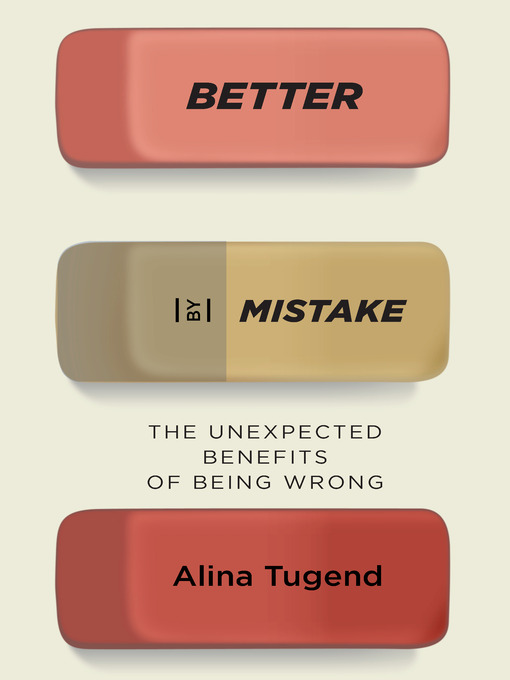
Better by Mistake
The Unexpected Benefits of Being Wrong
کتاب های مرتبط
- اطلاعات
- نقد و بررسی
- دیدگاه کاربران
نقد و بررسی

April 4, 2011
In her absorbing first book, veteran journalist Tugend confronts a common but complicated subject: making mistakes. Beginning with two universal truthsâpeople are not perfect and mistakes happenâthe author first defines her subject as separate from "error" and in consideration of its outcome (mistakes have led to countless scientific advances, for instance). Tugend investigates the fear of failure and shame of messing up that pervade American society (though we're not alone); unsurprisingly, the fear starts early and is reinforced often. One of Tugend's recurring themes is that we not only can, but should learn from our mistakes, and chapters discuss major errors from Wall Street, the field of aviation, and the hospital floor, including a famous case of the wrong limb being amputated. These case studies put into perspective our daily errors and illustrate the progress being made in mistake prediction and reduction. And the distinction between "person approach" and "system approach," posited by James Reason in Human Error, is also addressed. While Tugend's study of gender differences in this arena seems to circle the issue without landing anywhere truly interesting, her analysis of saying "I'm sorry" is highly illuminating. Ultimately Tugend succeeds, by stripping mistakes of their power to intimidate and effectively redefining them into malleable, manageable learning tools.

April 1, 2011
Sometimes belabored debut examines why making mistakes and learning from them is better than always trying to be perfect.
Covering what seems like familiar ground despite the book's counterintuitive title, New York Times consumer columnist Tugend argues that the childhood admonition to learn from our mistakes is culturally undercut by another, more powerful message: Errors are dreadful, can bring punishment and must be avoided, concealed or never discussed. This tension, the author writes, often leads to the risk-adverse tendency to stick with the known, and causes trouble in schools, cockpits and operating rooms, among other places. Remedies range from parents taking care not to unknowingly instill an error-avoidance mindset in their children to simple pre-flight and pre-op checklists that keep flight crews and surgeons from making the same oversights that may have caused past accidents. Well-selected excerpts from studies and interviews with experts provide the book with depth, but only in the conclusion does the full force of Tugend's prose emerge in a strong finish, in which she vividly evokes the profound importance of apologizing. Elsewhere, as in a lengthy consideration of gender bias in how mistakes are perceived, the author verges on being silly. We must strive, she writes, to "create a world in which it is safe for both men and women to make mistakes."
Thoroughly researched but low-wattage illumination.
(COPYRIGHT (2011) KIRKUS REVIEWS/NIELSEN BUSINESS MEDIA, INC. ALL RIGHTS RESERVED.)

























دیدگاه کاربران